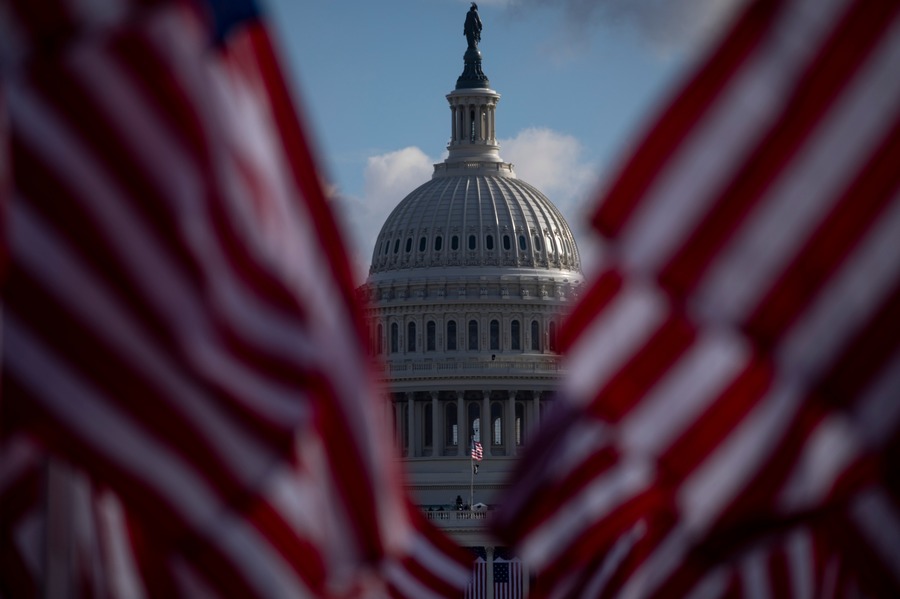Tracking Down the NDAA Reports
Last week, Lawfare covered the release of a new war powers report required by the National Defense Authorization Act (NDAA) for fiscal year 2018.
Last week, Lawfare covered the release of a new war powers report required by the National Defense Authorization Act (NDAA) for fiscal year 2018. While notable in several regards, this report was one of dozens required by the most recent NDAA, on topics ranging from the public availability of military commission proceedings to the threat posed by electromagnetic pulses. And like the war powers report, several of these reports’ due dates have already come and gone. Hence, we decided to pose a question to relevant congressional committee staff: how many of these reporting requirements has the Trump administration complied with?
The answer so far: not many. Based on public sources and conversations with relevant congressional committee staff, we understand that the Trump administration has only submitted four of the 13 NDAA reports that are currently due (as well as the recent Nuclear Posture Review, for which the NDAA did not establish a statutory deadline). Among the missing reports are strategies for dealing with North Korea, the Islamic State in Iraq and Syria, and state of Syria itself—the last of which has been due for over six weeks—as well as updates on such pertinent issues as the national security review of foreign investment and nuclear proliferation. Congress is actively debating several of these topics right now; yet, due to these missing reports, it is doing so without the input it has requested from the Trump administration.
If the Trump administration’s failure to submit these reports were to reflect a deliberate choice, this would be cause for serious concern. Reporting requirements can play an important role in how Congress and the executive branch interact over national security matters. Some elicit specific proposals or other information to inform the drafting of legislation. Others can assist congressional committees in overseeing various executive branch activities. And a handful are intended to serve a decision-forcing function by requiring the executive branch to take a position on a particular issue, thereby moving that issue up the relevant agencies’ priority list and encouraging the interagency dialogue necessary to develop an executive branch position. Disregarding these requirements would not only run counter to the rule of law but may make it harder for Congress to oversee and have an impact on U.S. national security policy. And while Congress could pursue more dramatic measures to require compliance—for example, by withholding funds until a certain requirement is met—the opportunities for enacting such measures over a possible presidential veto are few and far between.
Of course, there may also be good-faith reasons that the missing reports haven’t yet been submitted. The number of reporting requirements imposed by annual NDAAs and other legislation has grown in recent years, imposing an increasing burden on the policymakers responsible for complying with them. The most current NDAA exemplifies this trend, as at least 90 of its more than 700 individual statutory provisions either create or amend existing reporting requirements, an increase of roughly 13 percent from the prior year’s NDAA. As a result, late reports are not uncommon, particularly on issues that are complex or controversial and therefore require broader interagency coordination and debate. And extended vacancies or other sources of dysfunction in the bureaucracy—attributes that are evident in several parts of the Trump administration, notably the State Department—can further delay such reports, even if the relevant agencies ultimately intend to comply.
For these reasons, we believe it is worth keeping an eye on the status of the reports required by the NDAA. A short delay may just be the natural outcome of the proliferation of reporting requirements, which in turn may say more about Congress than the executive. But widespread or prolonged failures to comply to with relevant reporting requirements could be a sign of serious dysfunction, or something more deliberate.
To aid Lawfare readers in this effort, we’ve created a new tool: a tracker for relevant congressional reports. There, we’ve identified those reports from the most recent NDAA that we believe will be of most interest to Lawfare readers and noted their due date, authoring and receiving committees, and other relevant information. We intend to check with relevant congressional committee staff on the status of these reports as each due date comes up, and periodically thereafter. As we learn more information on the status of these reports, we will be sure to update the tracker (along with copies of the reports where publicly available).
Do you think we’ve missed a report of interest? Or do you know something about a specific report that we don’t? Email us!




.jpg?sfvrsn=5a43131e_9)
